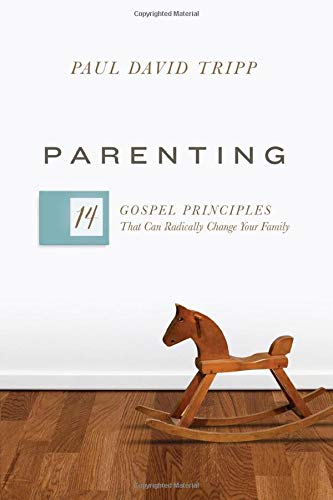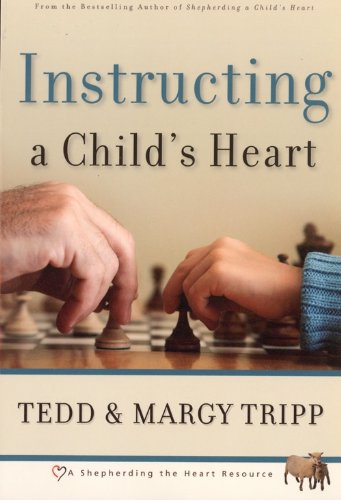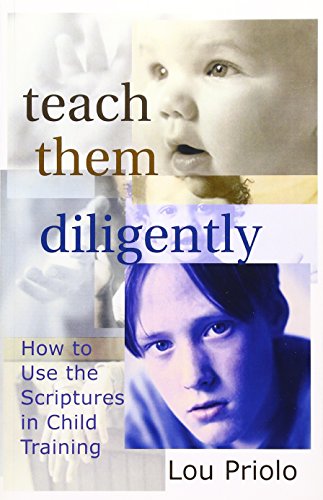Quotes about Parenting-Advice
The negative calls attention to itself, so it is easier to focus on the negative… [Parents] must not forget the times when the kids did obey and did do the right things… It takes effort to commend the good – much more than it does to condemn the bad.
But the last thing that a parent must do is to cut off communication. So, on the one hand he surely must discourage backtalk; but on the other he must never discourage genuine discussion, which includes giving reasons, explanations, and information that a child feels compelled to talk about… Parents, therefore, must learn to distinguish between the backtalk that needs to be silenced and the valid communication that needs to be encouraged.
In addition to teaching your children throughout the day, you must set aside specific, planned times to worship the Lord and learn His Word together. Conducting family devotions requires planning and diligence if this godly practice is to develop and be maintained in your home.
Self-Confrontation Manual, Lesson 17, Page 11, Used by Permission of the Biblical Counseling Foundation.
The education of children for God is the most important business done on earth. It is the one business for which the earth exists. To it all politics, all war, all literature, all money making ought to be subordinated; and every parent especially ought to feel, every hour of the day, that next to making his own calling and election sure, this is the end for which he is kept alive by God- this is his task on earth.
Discussions: Evangelical and Theological, v. 1, by permission Banner of Truth, Carlisle, PA. 1967, p. 691.
We should not encourage young children to draw and play during the preaching of the Word since we are training listeners, not idle-minded pew sitters.
Seriousness in Our Children and Teens, Christian Communicators Worldwide, www.CCWtoday.org. Used by Permission.
Parental affection is very powerful. It makes the parent, and the parent’s God, attractive. It communicates love and acceptance. We might tell our children that we love them, but affection convinces them. It is the bridge over which love passes to our children. Affection is the hammer that drives the nail of truth deep into their hearts. It would be hard to overstate the importance of affection.
Gospel-Powered Parenting, 2009, P&R Publishing, p. 205, Used by Permission. Get this book!
[Children] are capable of honoring God now, if they be well taught; and by their joining, as they can, in religious services with so much reverence and application as their age will admit, God is honored. The hosannas even of children well taught will be the perfecting of praise and highly pleasing to the Lord Jesus.
Never ever make a promise to your children you do not keep! …You may forget, but you have a little boy or girl who will remember it eighty years from now.
Disciplines of a Godly Man, Crossway Books, 1991, p. 50. Get this book!
Parents should [not] smother their children and give them no freedom. Smothering is almost as dangerous and disastrous as total permissiveness. It promotes hostility, insecurity, anxiety, resentment, overdependence, emotional instability, attitudes of inferiority, and indecisiveness.
A vital element for building a family is instilling a healthy sense of heritage – an appreciation of family roots, both earthly and spiritual. Yet it is increasingly common in our world for children to have no such sense of continuity or regard for family history. Too many feel that they have come from nothing and are bound for nothing- and this goes for Christians, too. Family heritage is a subject of neglect that is in need of rehabilitation. It is one of the disciplines of a godly family (Kent and Barbara Hughes).
Disciplines of a Godly Family, Crossway, 2004, p. 21. Get this book!
The local church was the womb that warmed our soul until it was ready for birth. The church fed us on the milk of the Word, providing us with many loving fathers and mothers. It stood with us when we presented our children to God, and it now mothers them. The local church has contributed much to our children’s spiritual nurturing (Kent and Barbara Hughes).
Disciplines of a Godly Family, Crossway Books, 2004, p. 68. Get this book!
Is my teen turning away from me or is he turning away from the truth (Todd Murray)?
Remember children are born with a definite bias towards evil, and therefore if you let them choose for themselves, they are certain to choose wrong… (Their) hearts are like the earth on which we walk; leave it alone, and it is sure to bear weeds.
A day will come when [your children] will see the wisdom of all your training. But in the meantime if you say a thing is right, it must be enough for them – they must believe you, and be content… Use every means to train them to have a habit of faith.
He gives your children a mind that will receive impressions like moist clay. He gives them a disposition at the starting-point of life to believe what you tell them, and to take for granted what you advise them, and to trust your word rather than a stranger’s. He gives you, in short, a golden opportunity of doing them good. See that you do not neglect such an opportunity. Once you let it slip, it is gone forever.
Love should be the golden thread that runs through all your actions in dealing with the child. Kindness, gentleness, tolerance, patience, sympathy, a willingness to enter into childish troubles, a readiness to take part in childish joys—these are the cords by which a child may be led most easily—these are the clues you must follow if you would find the way to his heart.
Love is the one great secret of successful training. Anger and harshness may frighten them, but they will not persuade the child that you are right; and if he often sees you angry and harsh, you will soon cease to have his respect.
Dear friend, if you want to train your children wisely, note well how God the Father trains His children.
Do we adorn Jesus, make Him look attractive? Is He noticeably our delight? Or do our children see from us a Jesus that keeps us from hell, but creates a hell on earth because of the apparent burden and joylessness that comes from following Him? Do they see Jesus as an unwelcomed taskmaster with unfair, meaningless and despicable rules?
It’s not difficult to control the externals of little ones through power and reward. Play just those two cards and you’ll have the most behaved children in the supermarket, church and social gatherings. This works great for about the first eight years. Unfortunately everything will collapse after that when their rebellious heart shines forth and you can no longer externally restrain them through your intimidation and meet their deepest needs through your trinkets.
The voices of childhood echo throughout life. The first learned is generally the last forgotten.
Alas, if our children lose the crown of life, it will be but a small consolation that they have won the laurels of literature or art.
Love your children as your heavenly Father loves you – with selfless love. Children are not there for us, we are there for them. Unconditional love is that love for a child no matter what he or she looks like, no matter what his or her assets or liabilities are, no matter how they act. This love will not increase or decrease according to their achievements or failures. The message conveyed will be, I love you for who you are and not because of what you have done.
For we can’t choose on our terms when our children will relate to us. It’s only as we give quantity time that out of that arises quality time – a precious window of opportunity.
The goal of parenting is to work ourselves out of a job. The goal of parenting is to raise children who were once totally dependent on us to be independent, mature people who, with reliance on God and proper connectedness to the Christian community, are able to stand on their own two feet.
Age of Opportunity, P&R Publishing, 1997, p. 36-37, Used by Permission. Get this book!
The goal of parenting is not to retain tight-fisted control over our children in an attempt to guarantee their safety and our sanity. Only God is able to exercise that kind of control. The goal is to be used of Him to instill in our children an ever-maturing self-control through principles of the Word and to allow them to exercise ever-widening circles of choice, control, and independence.
Age of Opportunity, P&R Publishing, 1997, p. 37-38, Used by Permission. Get this book!
Children will serve and worship God, or they will serve and worship something else. You cannot divide children into two groups, those who worship and those who do not. Every child is a worshiper. The question is, What does he worship?
Age of Opportunity, P&R Publishing, 1997, p. 43, Used by Permission. Get this book!
Children are worshipers, and their lives are shaped and controlled by whatever they worship. That means that every moment is a God moment. In every moment, a child is accepting his role as a creature and living in worshipful obedience to God, or he is exchanging God for some aspect of the created world he is living to get. Children don’t typically think of themselves this way (nor do their parents!), so they need us to faithfully point out to them the covenantal nature of their actions. There is no more important piece of the Bible’s job description for parents.
Age of Opportunity, P&R Publishing, 1997, p. 44, Used by Permission. Get this book!
You must be committed as a parent to long-view parenting because change is a process and not an event. Even the world’s best teacher – Jesus – had a process mentality and, because He did, He was willing to leave His work to unfinished people (see John 16:12–15).
Fourteen Christian Principles of Parenting. Desiring God Website, You Don’t Need More Parenting Advice, https://www.desiringgod.org/articles/you-dont-need-more-parenting-advice
Children need to learn how to do things which they do not want to do, when those things ought to be done. Older people have to do a great many things from a sense of duty. Unless children are trained to recognize duty as more binding than inclination, they will suffer all their lives through from their lack of discipline in this direction.
Quoted by Melinda Keen Lewis, Simply Homeschooling, Morris Publishing, 2002, p. 20-21.
It is better to build strong children than to try to repair adults.
The world’s smallest battlefield is the child’s heart. And the conquering of it calls for all out hand-to-hand combat.
Our children are the only earthly possession we take with us to heaven.
The most precious commodity you can give to your child is your time.
Quoted in: Encouragement – Oxygen for the Soul by Derick Bingham, Christian Focus, 1997, p. 115. Used by Permission.
If I were starting my family again, I would love my wife more in front of my children. I would laugh with my children more at our mistakes and our joys. I would listen to my children more, even to the littlest one. I would be more honest about my weaknesses and not pretend perfection. I would pray differently for my family. Rather than focusing on them, I’d focus on me. I would do more things with my children. I would do more encouraging. I would bestow more praise. I would pay more attention to little things. I would speak about God more intimately. Out of every ordinary thing of every ordinary day I would point them to God.
Quoted in: John MacArthur, God’s Pattern for Parents – Part 2, The article originally appeared (www.gty.org/Resources/Sermons/1950B) at www.gty.org. © 1969-2008. Grace to You. All rights reserved. Used by permission.
Most moms and dads think they are either the best or the worst parents in the world, and both are wrong.
If we leave the soil of our [children’s] self-worth unwatered by our unconditional admiration, we send them into a world happy to satisfy that parched ground with conditional praise.
To Your Daughter, Speak the Truth, February 16, 2016. Seen on the Gospel Coalition website.





















